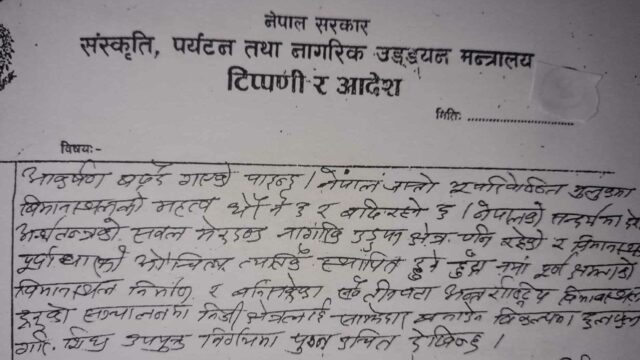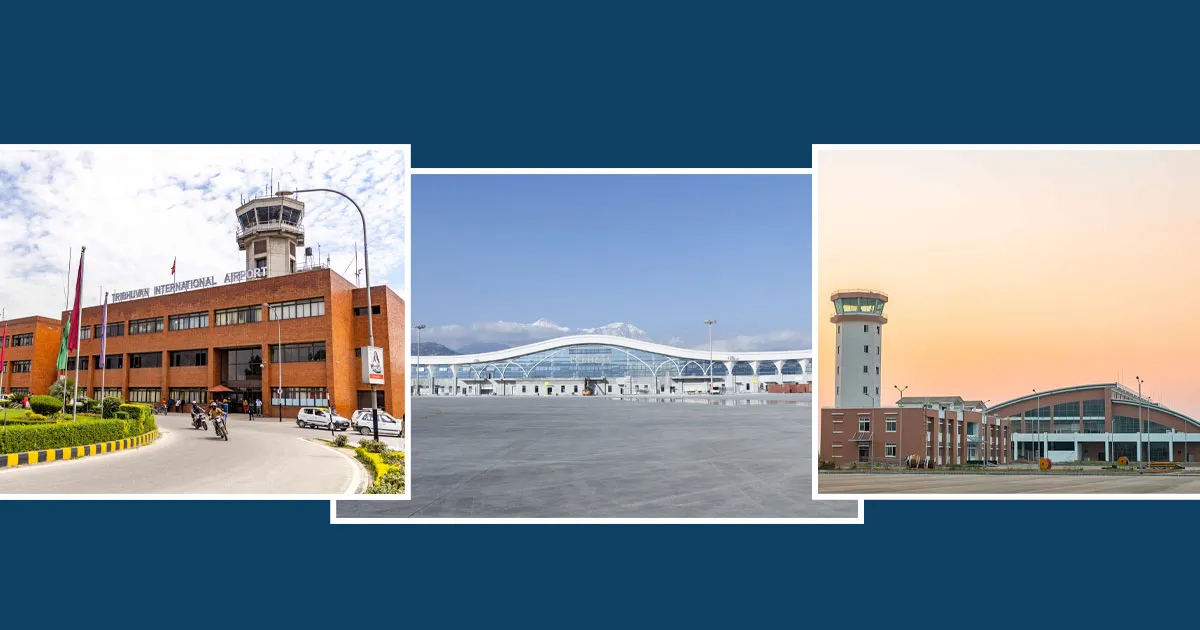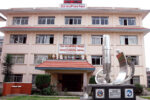KATHMANDU: Prime Minister (PM) Pushpa Kamal Dahal, despite his slogan for good governance, faced criticism for appointing Lharkyal Lama, with a controversial background, as Vice Chairman of the Lumbini Development Fund last July.
This decision, made against Tourism Minister Sudan Kirati’s objections, later led to the allocation of 120 bigha of land to a private company for 99 years, raising concerns about the excavation of the Ramgram area in Nawalparasi, a site holding the ashes of Gautam Buddha, and the construction of a Buddhist stupa.
While the Lumbini Development Fund recently rectified the heritage controversy, questions persist about Lharkyal’s appointment, with rumors suggesting the involvement of Prime Minister Prachanda’s daughter, Ganga Dahal.
Following the controversial Lharkyal case, the Prachanda-led government has shifted its focus to Nepal’s three international airports, sources have claimed.
The government’s plan to involve the private sector in these crucial assets, central to national security, has raised alarms.
If successful, it could mean the loss of government control over international airports and the transfer of significant state revenue to private entities.
Prime Minister Prachanda, and Maoist Center Chairman, has initiated the privatization process for all international airports, including the upcoming Nijgadh Airport.
Campaigns in favor of this move, spearheaded by individuals with controversial backgrounds from the Civil Aviation Authority and Ministry of Tourism, are underway in the name of Prime Minister Dahal.
Maoist leaders express concern that privatizing all three international airports would forever stain the Prachanda government’s legacy.
A Maoist leader told Khabarhub, “If this decision is taken by the government, it will be considered a betrayal of the country.”
Now, let’s delve into the unfolding developments surrounding the three international airports.
The privatization path paved by Prachanda’s policies
On the one-year anniversary of the government’s formation on December 26, 2023, Prime Minister Pushpa Kamal Dahal Prachanda laid out plans for international airports.
The statement highlighted challenges faced by Pokhara and Bhairahawa airports, discussed initiatives for nearby flights, and contemplated a public-private partnership model for Kathmandu, Bhairahawa, and Pokhara airports, alongside the construction of Nijgadh Airport.
The Prime Minister’s pronouncement facilitated the authority’s move towards private sector involvement.
Prime Minister Dahal’s speech explicitly indicated the initiation of discussions regarding the inclusion of the private sector in all three government-owned international airports.
Following his address, the Civil Aviation Authority found a smoother path to proceed.
Fifteen days later, a meeting of the Civil Aviation Authority of Nepal Board of Directors convened.
The meeting, propelled by the Prime Minister’s directive, resolved to advance the process of allowing the private sector into the three international airports and promptly communicated this decision to the ministry.
The Authority also advised the Ministry to seek approval from the Council of Ministers to preempt potential challenges to this decision.
Ministry’s Response and Sudan Kirati’s Approval
Within the Ministry of Culture, Tourism, and Civil Aviation, the proposal reached Minister Kirati through the Joint Secretary and Secretary after comments were raised by employees previously accused of corruption.
In response, ministry employees proposed the formation of an investigation committee, recognizing the difficulty in directly deciding on private sector involvement at the cabinet level.
This proposed committee, inclusive of experts and ministry employees, was tasked with conducting a thorough examination.
The members were granted ministerial facilities, transportation expenses of 20,000 per month, and lunch expenses.
On January 18, 2024, Minister Kirati endorsed the ministry-level decision.

With this procedural formality completed, the Prachanda-led government appears poised to introduce the private sector into all three airports.
If this unfolds and the fate of Nepal’s airports parallels that of the Bansbari Leather Shoe Factory, rectifying the error may become an inevitable and regrettable course of action.
In the past, the Nepali Congress government’s decision to privatize state-owned entities like the Bansbari Leather Shoe Factory, Bhrikuti Paper Factory, Raghupati Jute Mill, and Hetauda Textile Industry, citing financial losses and inefficiency under government ownership, had widely recognized repercussions.
The outcomes of these privatizations are well-known.
Interestingly, the current Prachanda-led government is on the verge of a significant move, contemplating the transfer of control over international airports to the private sector—a step that even the Nepali Congress hesitated to take in the past.
This decision, however, has not escaped opposition, even from within the Maoists, highlighting the contentious nature of this strategic shift.








Comment